Self Awareness Teaching Resources
Help your students develop self awareness with activities, printables and more social and emotional teaching resources designed specifically for primary school students.
Created by teachers, for teachers, this collection is full of digital and printable activities designed to help students recognise their emotions and learn to identify their own strengths and weaknesses. Each teaching resource has undergone rigorous review by the Teach Starter team to ensure it's ready for the classroom ... and your students!
Curious about teaching self awareness and wondering how it applies to kids in your classroom? Read on for some tips from our expert teachers!
What Is Self Awareness? A Kid-Friendly Definition
Most students are not terribly self aware when they enter primary school, and that's completely normal. After all, any adults aren't very adept at self awareness! That's why it's so important to include these lessons in your planning to help students flex those muscles and become more aware of who they are.
So how do you explain the meaning of self awareness to your class, and how do you teach it? Let's start with a kid-friendly definition.
Self awareness means understanding yourself, your feelings and how your actions affect other people.
You might tell your students that being self-aware is a bit like having a mirror inside your mind that can help you see who you are and how you can make good choices.
Explain to students that when you're self-aware, you know what you're good at and what you might need to work on to become your own superhero.
Why Is Self Awareness Important?
Learning to be self-aware is part of gaining control of one's own emotions, thoughts and actions, and the lessons we teach in the classroom contribute to our students' personal growth, social interactions and overall well-being in the immediate future and well into adulthood.
When kids (and adults!) lack self awareness, they tend to struggle with poor decision-making, and they may have trouble understanding how their behaviour affects others. This can lead to misunderstandings and conflicts with peers and others around them or even unintentional harm to relationships, as they may struggle to empathise or consider the perspectives of others.
Self Awareness Examples for Kids
Explaining self-awareness by providing a definition is one thing, but surely you want to dig a little deeper.
Here are some examples from our teacher team that you can use to illustrate what it means to be self-aware — and why it's so important!
- Identifying Emotions — Being able to label our emotions with names like happiness, sadness, anger or excitement is a great example of being self-aware. For example, your students might learn to say, 'I feel happy when I play with my friends at recess.'
- Understanding Your Talents — Another example of self awareness that kids can easily relate to is identifying one's strengths or talents. It can be helpful to consider things we can do well and things we want to work on to improve. For example, a student might say 'I am very good at singing, but I would like to practise my spelling to improve.'
- Seeing Strengths in Our Peers — Acknowledging our own strengths is only part of being self-aware. It's also good for students to identify (and celebrate) the strengths of others. This will help them build better relationships in the long run.
- Plus Plan
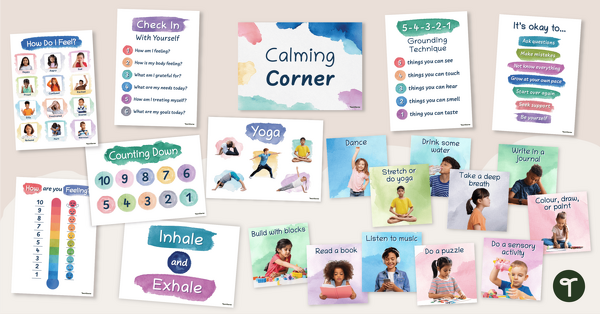
Calm Down Corner Classroom Decor Pack
Create a classroom calming corner with a printable Calm Corner Decor Pack.
- Plus Plan
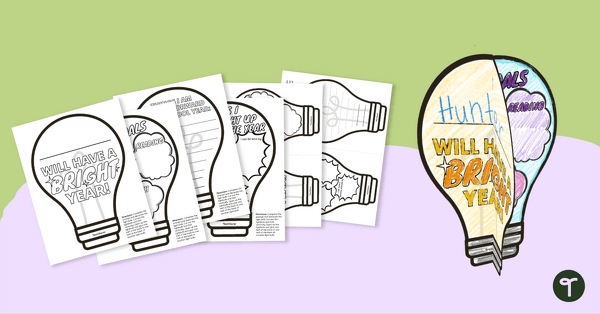
Have a Bright Year! Lightbulb Craft
Brighten up your classroom with a fun Lightbulb-themed goal-setting craft activity.
- Plus Plan
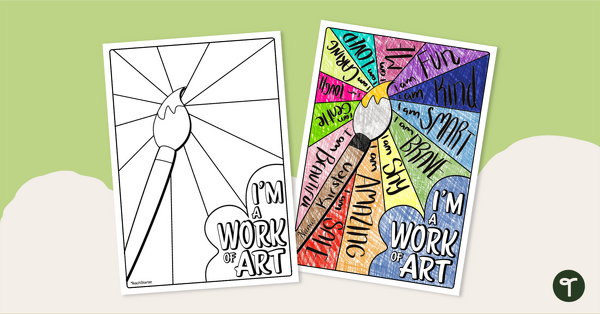
I Am Worksheet - Affirmation Art Activity
Use this ‘I Am’ Worksheet to inspire your students to share how special they are at the beginning of the school year.
- Plus Plan
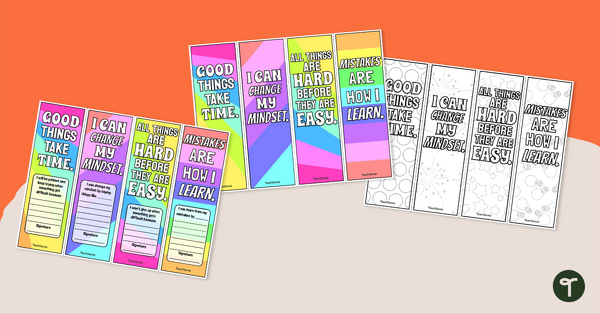
Growth Mindset Bookmarks
Encourage your students to think about their growth mindset with this set of printable bookmarks.
- Free Plan
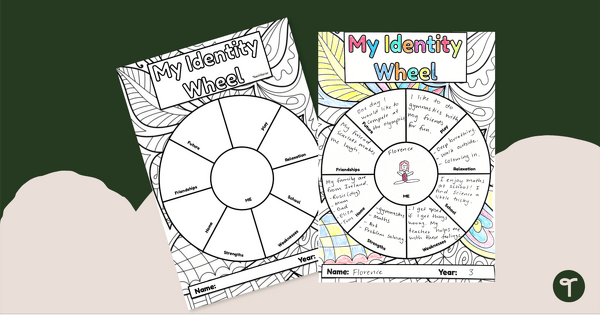
Personal Identity Activity (My Identity Wheel)
Explore personal identity by completing this personal identity wheel template.
- Plus Plan
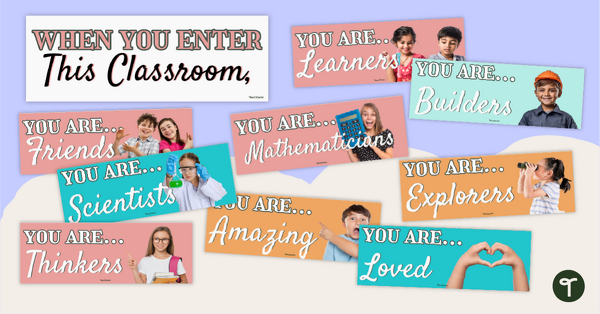
When You Enter This Classroom - Door Display
Welcome your students into your classroom with a ‘When You Enter This Classroom” Student Affirmations Classroom Door Display
- Free Plan
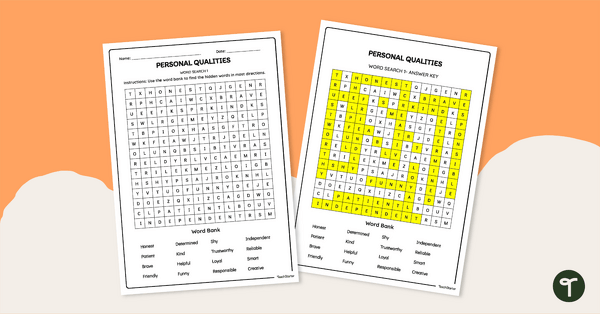
Personal Qualities Word Search
Explore different personal qualities with your students with this printable personal qualities word search.
- Plus Plan
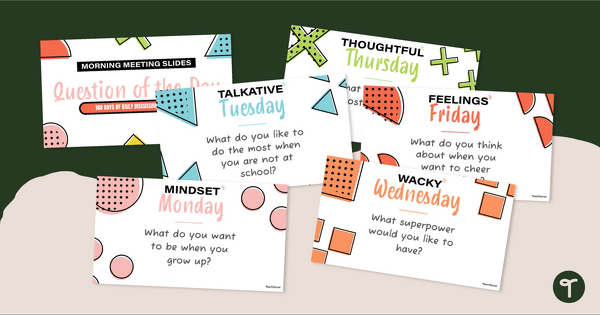
Social Emotional Learning - Question of the Day Morning Meeting Prompts
Download 180 days of morning meeting questions to foster communication and positivity while building relationships in your classroom.
- Plus Plan
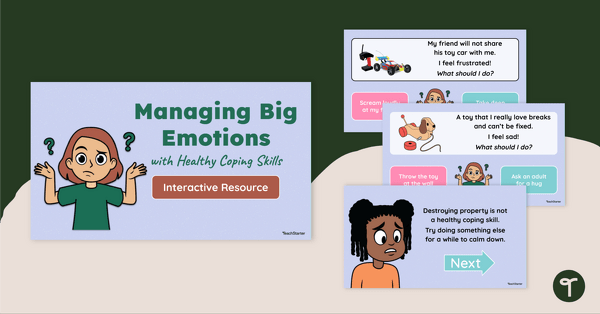
Managing Big Emotions – Interactive Activity
Teach students how to manage emotions using healthy coping skills with this interactive scenario game for the early years classroom.
- Plus Plan
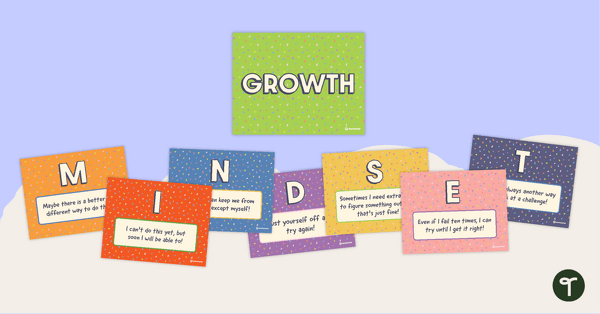
Growth Mindset Bulletin Board
Print a growth mindset bulletin board to display in your primary classroom.
- Plus Plan
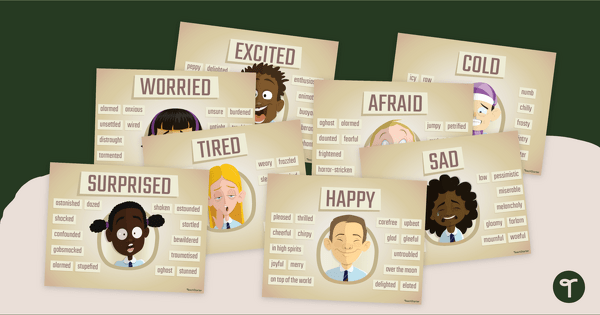
Synonym Poster Pack - Emotions Chart Display
Blend social-emotional learning and vocabulary building activities with a set of 15 emotional synonyms anchor charts.
- Free Plan
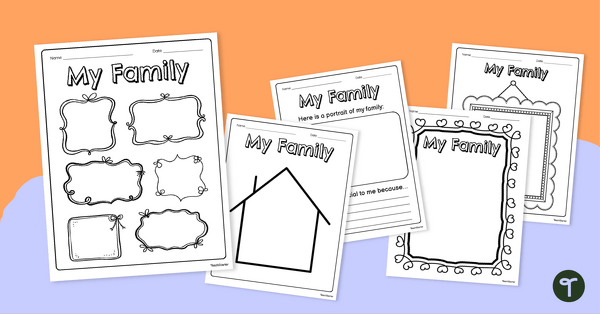
My Family Portrait Templates
Encourage your students to explore their identity through these Family Portrait Worksheets Templates.
- Plus Plan
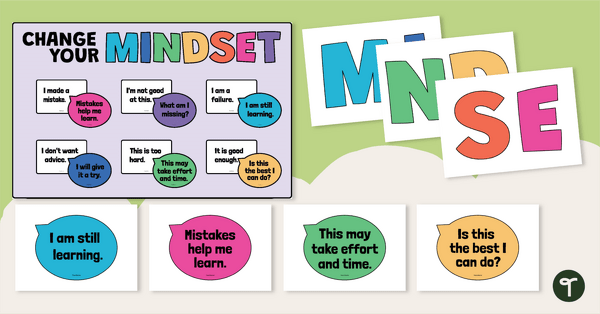
Positive Growth Mindset Posters
Positive growth mindset posters to display in your classroom.
- Plus Plan
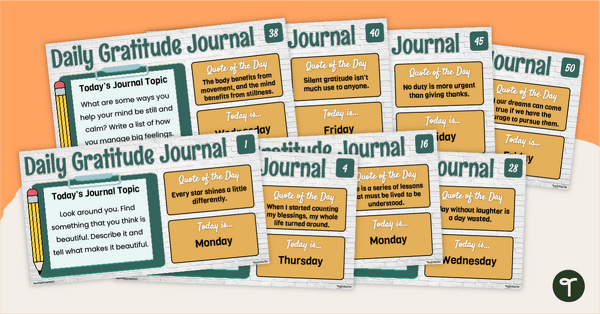
Gratitude Journal Writing Prompts for Kids - Daily Slides
Project and inspire reflective writing with 50 gratitude journal writing prompts in one handy slide deck.
- Plus Plan
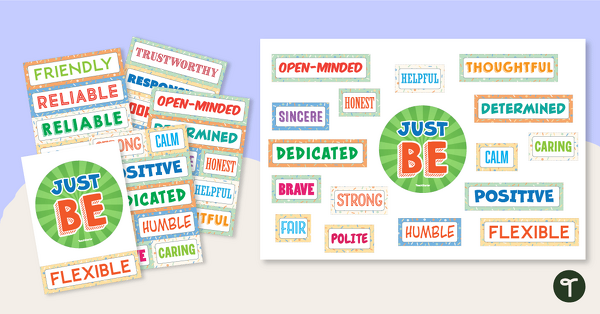
Just Be - Positive Character Traits Classroom Display
Set an optimistic tone and promote positivity with a Character Education One-Word Back to School board.
- Plus Plan
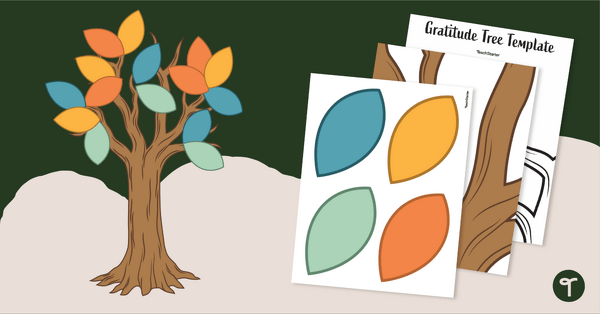
Gratitude Tree and Leaves Template
Create a gratitude tree display with a printable tree and leaves template.
- Plus Plan
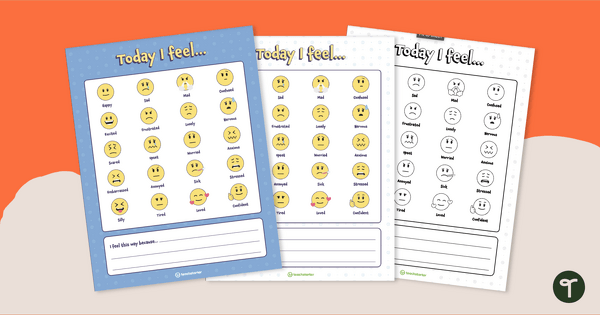
Student Daily Check-In Template
Check in on your students' emotions each day with a printable emotions chart.
- Plus Plan
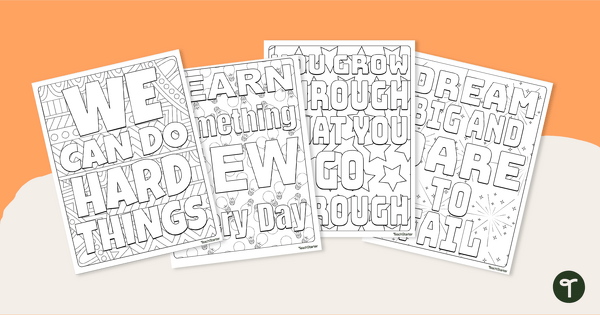
Growth Mindset Colouring Pages
Inspire creativity and encourage your students to think positively with a set of growth mindset colouring pages.
- Free Plan
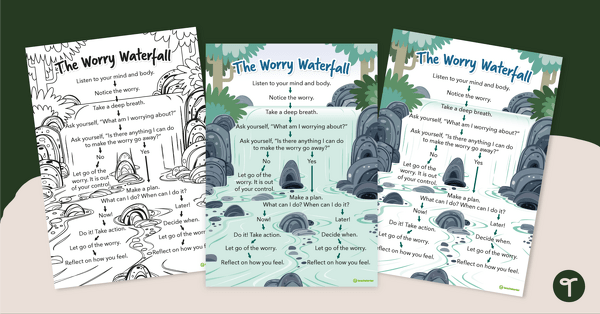
The Worry Waterfall – Anxiety Management Poster
Teach your students how to deal effectively with worrying thoughts with this classroom poster.
- Plus Plan
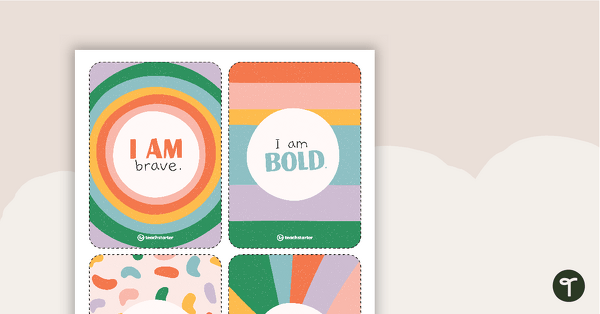
Positive Affirmation Cards for Kids
A set of 24 inspiring positive affirmation cards to encourage a growth mindset, self-confidence and self-belief.
- Plus Plan
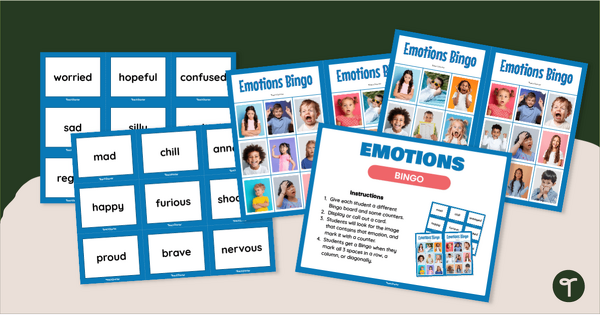
Emotions Bingo
Play Emotions Bingo to help your little learners practise recognising emotions.
- Plus Plan
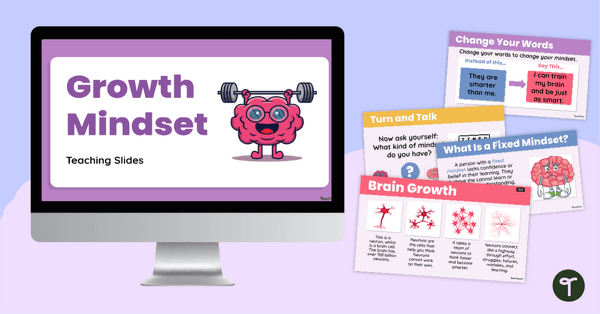
Growth Mindset PowerPoint
Help your students develop a growth mindset with a Growth Mindset Teaching Slide Presentation.
- Plus Plan
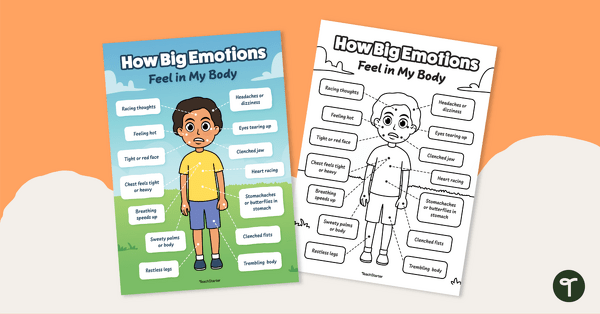
How Big Emotions Feel in My Body – Poster
Help your students identify the signs their body gives them that they are experiencing a ‘big’ emotion with this informative classroom poster.
- Plus Plan
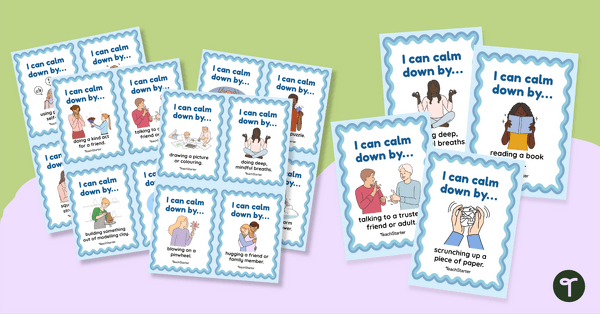
Calm-Down Strategy Cards
Help your students choose and apply strategies when they need to calm down with this comprehensive set of calm-down strategy cards.
- Free Plan
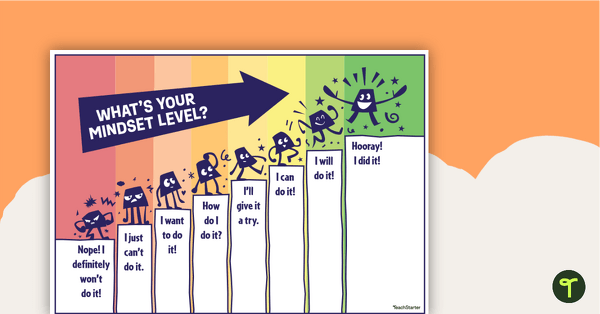
What's Your Mindset Level? - Poster
Encourage your students to adopt a growth mindset with this engaging classroom poster.
- Plus Plan
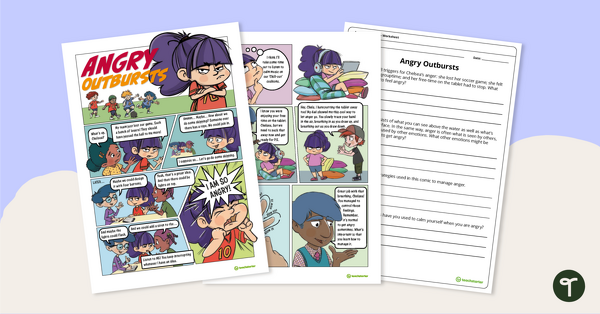
Angry Outbursts – Comprehension Worksheet
Explore emotional awareness and healthy calming strategies with this comic-style comprehension passage and accompanying questions.
- Plus Plan
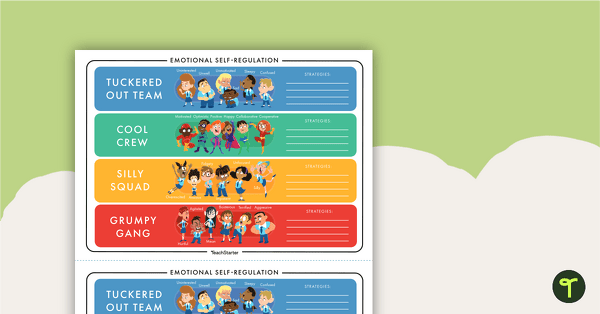
Emotional Self-Regulation Desk Mat
Promote emotional awareness and self-regulation in your classroom with this desk-sized strategies mat.
- Plus Plan
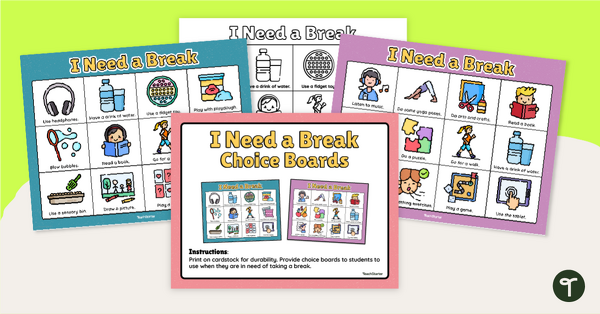
I Need a Break - Choice Boards
Help upset students regulate their emotions in the classroom with our printable ‘I Need a Break!’ choice boards.
- Free Plan
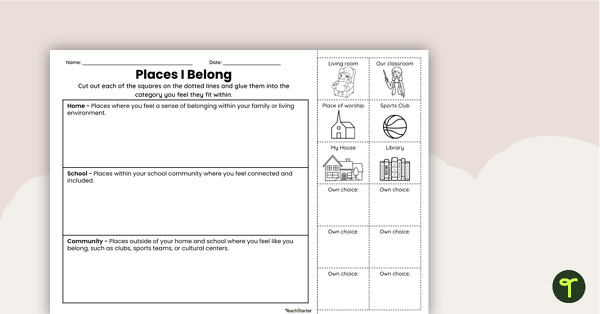
Places I Belong Cut-and-Paste Worksheet
Encourage students to think of the different places they feel a sense of belonging at school and in the home environment.
- Plus Plan
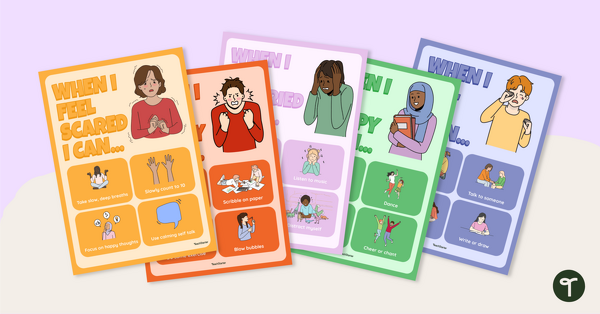
Managing Big Emotions Posters
Help students manage emotions such as anger, fear, worry, sadness and happiness with this colourful set of posters for your primary school classroom.
- Plus Plan
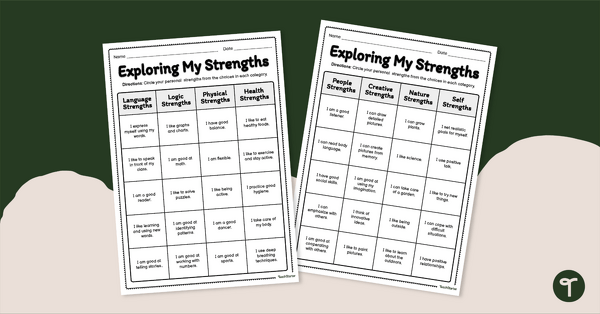
Exploring My Strengths Worksheet
Explore individual strengths with this My Strengths Worksheet.
- Plus Plan
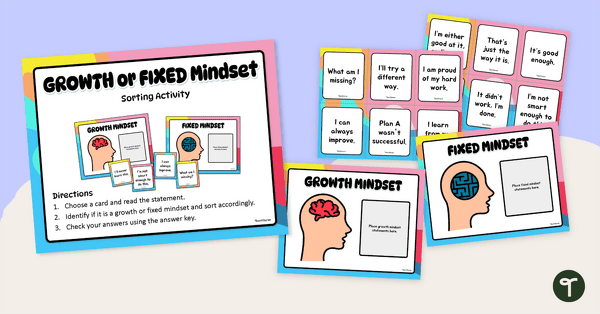
Growth or Fixed Mindset Sorting Activity
Help students understand the difference between a fixed mindset and a growth mindset with this sorting activity.
- Self Awareness Worksheets
- Self Awareness Posters
- Self Awareness Templates
- Self Awareness Labels, Signs & Decorations
- Self Awareness Games
- Self Awareness for Foundation Year
- Self Awareness for Year 1
- Self Awareness for Year 2
- Self Awareness for Year 3
- Self Awareness for Year 4
- Self Awareness for Year 5
- Self Awareness for Year 6